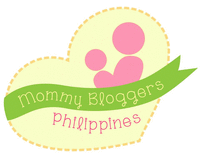This post is inspired by my daughter’s 4-year friendship with her best friend Khia. They started really young when they were barely 2 year olds spending each day together at their playschool. I’m really thankful that Peaches experienced friendship and what it’s worth in such an early age because this will bring her good memories and lessons in life as she grows up. I know because I did. Unfortunately I couldn’t say the same to my husband. They moved a lot during his childhood years so he didn’t have “time” to develop x-years worth of friendship. Me on the other hand was born and raised for 16 years in this little town in Southern Mindanao. It gave me friends that know me half of my life and classmates I’ve had since Kindergarten until we graduated in High school.
Peaches and Khia get along pretty well and both girls are comfortable to both set of parents. We have Khia over for playdates and vice versa. I wish that they remain friends for a long time. Both girls are stepping to different big schools next year and will surely meet new set of friends and best friends but we (my husband and I and Khia’s parents) promised to bring the girls together for a lunch date or a whole day of fun often. It wouldn’t be too hard because Khia’s parents are young like us and we all get along pretty well because we have the same interests and hobbies.
Friendship and Young Children
Friendship for young children, like that of older children, needs to be nurtured and encouraged. I have observed that both girls mimick each others’ actions which shows that they like to cooperate and do things together. Early relationship with friends can teach your child empathy, loyalty and most importantly positive peer interactions.
Without the fundamental skills to play socially and develop friendships with age-mates, children will not have the opportunity to practice more complex skills on which future peer relationships are based. No child is born with these skills. They must be learned! – http://www.teachersandfamilies.com/open/parent/socialskills1.cfm
Developing Friendship with Preschoolers
At this stage, the kids are able to express and communicate their feelings well and can therefore interact and relate better with their friends. Parents and teachers should encourage friendship formed with specific friends through show of support, giving the kids opportunities to play together outside their common environment and as well as give the kids time to play together as a pair or small group within a big group of kids such as that of a playground, party or playdates.
Rejection from Peers
Expect that your child will be rejected by her peers. It could be a opinion that she voiced out or a deliberate rejection when she asked to play with someone else or a group of children. Teach your child how to react and relate to such rejections by openly talking about their social life, their peers and how they interact with other kids. Do not pacificy rejection by saying negative things such as, “Don’t mind those kids, they are losers”. Instead try to help your kid adjust his or her behavior so they can cope with the feelings of rejection. Socially adept children view rejection as a temporary situation and that there’s something they can do to change it.
Ultimately my goal to help my daughter be socially capable and nurtured is to be a friend to her and to show her how we are with my set of friends. I show her that my friends are like family and that we do things together, I do things together with my set of friends, her Dad do things together with his set of friends too.




